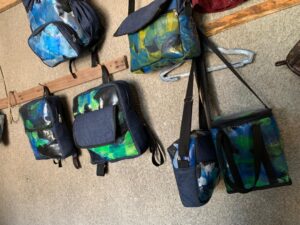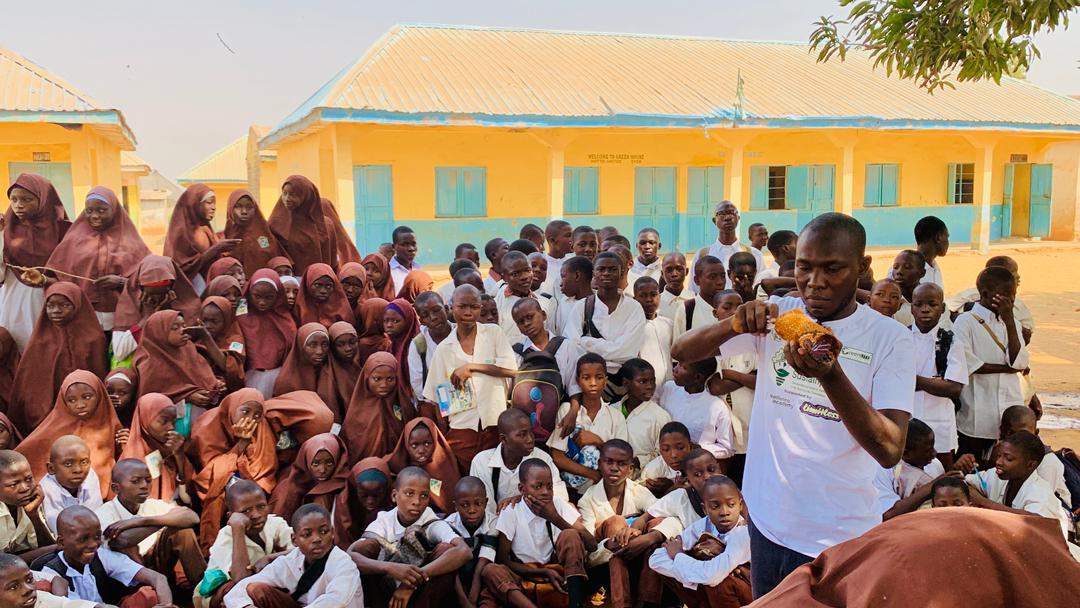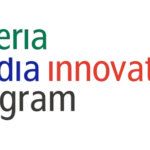By Muhammad Habibat Sani
A year after he began studies at the Usmanu Danfodiyo University in Sokoto, Sayedi Umar Mohammed came face-to-face with a pollution crisis around his campus, spurring his interest in climate change.
That the young men and women within the neighbourhood—some of whom were avowed climate activists—appeared undisturbed about the growing waste problem around them troubled him more. For months, he and several colleagues thought long and hard about how they might put some of the trash to good use.
By 2020, their efforts paid off.
“We were able to create our first product from waste materials as undergraduates, called PHP Composite,” recalled Mohammed, now a chemistry graduate.
PHP Composite entails a flurry of processes in which groundnut shells are added to molten plastic and then hewn into shape using heavy heat and pressure. The resulting chipboard is said to be a durable alternative to wood and the medium-density fibreboard, or MDF, often used in construction and furniture-making.
In Nigeria, plastic waste constitutes nearly 8% of the country’s 32 million metric tonnes of waste annually. With a booming population leading to more consumption, Nigeria’s total waste is projected to reach 107 million tonnes by 2050, highlighting a dire waste crisis in the future.
This grim prospect propelled Mohammed to start Greenlite Solution later in 2020 to foster public awareness about recycling and waste management.
“I witnessed the environmental impact of improperly disposed plastics, sachets and the challenges faced by low-income families in accessing necessities like school bags,” Mohammed recalled of his NYSC experience in the Nigerian state of Cross River.
To address these issues, he reprocessed the plastic debris into school bags and shopping bags and sold them at low costs to the indigent families.
Months into his service year, Mohammed organised a boot camp on waste management and recycling under Greenlite Solution’s flagship programme. The training saw its participants, more than 1,000 secondary-school students, learn ways of turning used plastic bottles into storage boxes, waste baskets and key holders.
“I’ve developed a new perspective on waste disposal. Now, I see opportunities to repurpose and use materials, which helps reduce waste and promote a cleaner environment,” said Joseph Bassey, one of the students at the boot camp.
Ensuring a steady supply of discarded plastics and other waste materials can involve a lot of costs, especially when sourcing them from another location. Muhammed offered money to locals in exchange for their plastic waste.
Despite his growing success at spreading green awareness among Nigerian youths, he faces resistance, particularly from people who are hesitant to purchase products made from waste.
“Even when we launched our first bag products, it took us days to convince some students and staff to purchase them. They saw these products as waste and not neat, despite their wonderful design and colouration,” he explained.
Another problem was widespread ignorance about the economic value of recycling, which Muhammed noted during Project Sustainsphere, a nonprofit subsidiary of Greenlite Solution that trains students and communities on recycling and sustainable climate measures.

Over the years, GreenLite Solution has gained recognition for its innovative approach, winning awards and securing grants such as the Project 12M grant and the Top 10 Evolution Camp.
“Turning waste into useful or valuable items should become a culture that is taught and practiced from primary school to university,” said Peggy Ogar Akwaji, another student from Muhammed’s boot camp in Calabar. “Since our training, I’ve been able to come up with even more creative eco-friendly products from waste materials.”

According to Aniebet Obot, a researcher and environmentalist, integrating climate education into school curriculums and providing incentives can help foster awareness of recycling, which is generally perceived with negative bias.
“The government should take measures to encourage youths to engage in waste management initiatives like recycling and recognising the importance of informal recyclers.”
Similarly, Abdul Hamidu Abdullahi, a lecturer at Ahmadu Bello University in Zaria, noted the importance of strategic partnerships between schools and recycling organisations to ramp up public consciousness.
“For example, at Ahmadu Bello University Zaria, we have a ‘plugging club’ where we combine keeping fit with picking up waste, sorting it into degradable and non-degradable categories,” he said.
Yet Abdullahi reckoned that conducting workshops for recyclers, with start-up kits for them, can “grow up the understanding that there’s a way to turn waste into wealth,” ultimately encouraging many more people to embrace recycling.
Sayedi Umar Mohammed, a chemistry graduate from Usmanu Danfodiyo University in Sokoto, was inspired to tackle pollution after observing the waste crisis around his campus. This led to the creation of PHP Composite, a product made from recycled waste materials like groundnut shells and molten plastic. Mohammed then founded Greenlite Solution in 2020 to raise public awareness about recycling in Nigeria, a country projected to reach 107 million tonnes of waste by 2050. His initiatives include creating affordable products for low-income families from recycled plastics and organizing workshops to teach over 1,000 students how to repurpose waste.
Despite challenges such as public resistance to using recycled products and ignorance about the economic value of recycling, Greenlite Solution has succeeded in spreading environmental awareness and innovation, winning several awards. Mohammed advocates for integrating climate education into school curriculums and forming partnerships between educational institutions and recycling organizations. By conducting workshops and offering incentives, the goal is to foster a culture where transforming waste into valuable products is widely practiced and embraced.






